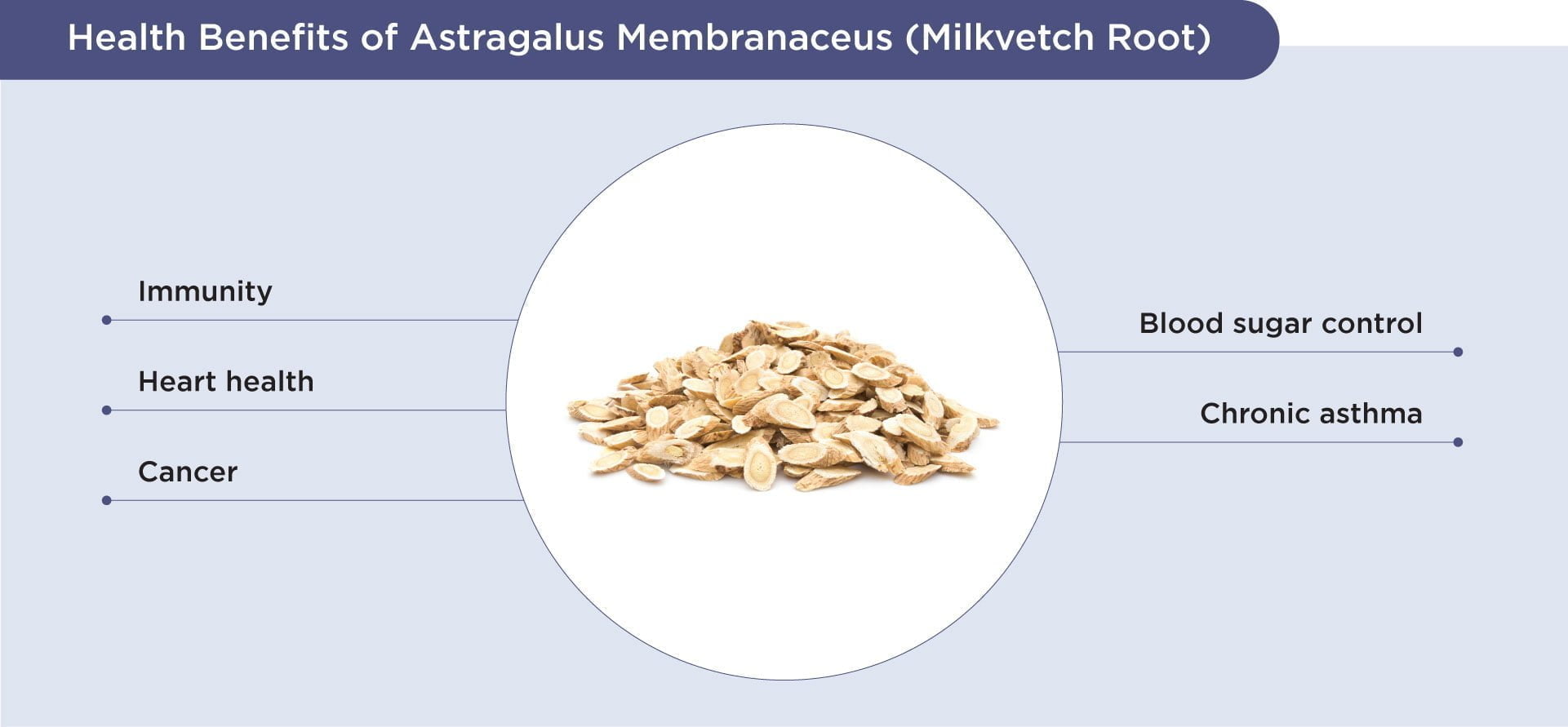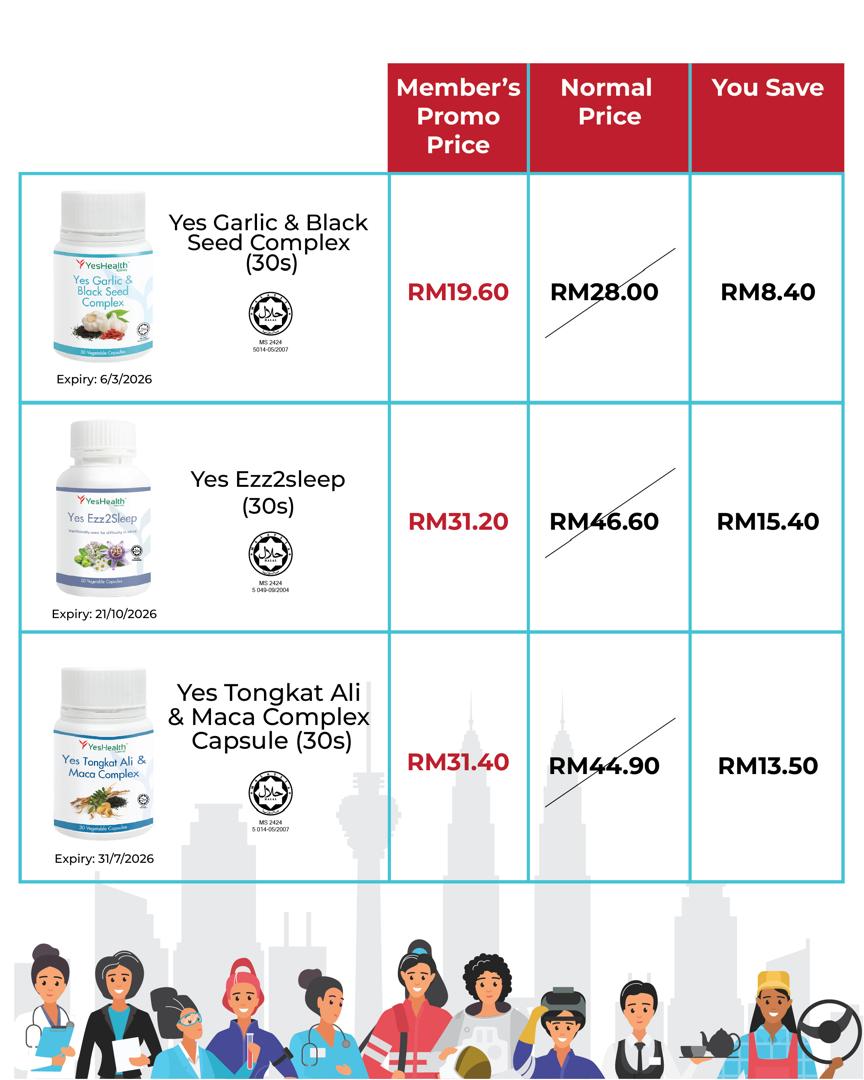Astragalus membranaceus (Milkvetch Root)

Astragalus membranaceus (Milkvetch Root)
Astragalus membranaceus, also well-known as milkvetch root or Huangqi in China, is one of the most popular herbs used in many traditional herbal formulations in the practice of traditional Chinese medicine (TCM) 1. Astragalus is a perennial flowering plant within the Leguminosae family, native to the north and eastern regions of China. Astragalus roots are harvested from 4-year-old plants and are the only part of the plant that is used medicinally. The use of Astragalus membranaceus was originally described in Shen Nong’s Materia Medica over 2000 years ago 1. Traditionally, Astragalus membranaceus is used to support and enhance the immune system, to treat various conditions, including viral infection, fatigue, decreased appetite, debility, liver and kidney disease 2.
Nutritional Facts
To date, more than 200 compounds have been isolated and identified from Astragalus membranaceus 2. The three major bioactive components of Astragalus membranaceus are polysaccharides, isoflavonoids, and saponins. Other major compounds that can be found are folic acid, selenium, zinc, iron, and various amino acid 1,2.
Published Health Benefits
1. Immunity
Studies showed that Astragalus membranaceus possesses an immune-enhancing effect. Astragalus membranaceus regulates and activates immune cells such as T-lymphocytes, natural killer cells, and macrophages 3. There is also evidence on the effectiveness of Astragalus as an antiviral 3,4.
2. Heart Health
Astragalus membranaceus may help improve heart functions in those with certain heart conditions 2. Astragalus may have diuretic effects which would lower the blood pressure and widen the blood vessels, thereby increasing the amount of blood that reaches the heart 2. The flavonoids present in astragalus are antioxidants that help prevent plaque build-up in the arteries, while astragalus polysaccharides (APS) able to reduce the level of triglycerides and total cholesterol 3,4.
3. Cancer
Studies have been shown that APS, saponins, flavonoids possess anti-proliferation activity on cancer cells. APS significantly promotes cell death of tumour cells in lung, liver, stomach, and colon cancer. Astragalus also helps to alleviate side effects from chemotherapy such as nausea and vomiting 3,4.
4. Blood Sugar Control
The active compounds in Astragalus roots such as saponins, flavonoids, and polysaccharides are all effective in regulating blood sugar levels in Type 1 and Type 2 diabetes 2. Astragalus able to increase insulin sensitivity, protect β cells of the pancreas 2,3. Astragalus also showed effectiveness in reducing diabetic complications such as diabetic nephropathy (kidney disease in diabetics) and diabetic retinopathy (diabetic eye disease) 2.
5. Chronic Asthma
Astragalus is also traditionally used in China to treat asthma. Astragalus reduces airway hypersensitivity, mucus production, and inflammation, thereby reducing asthma attacks in individuals with chronic asthma issue 2.
References:
1. Shahrajabian, M. H. (2019). A Review of Astragalus Species as Foodstuffs, Dietary Supplements, A Traditional Chinese Medicine and A Part of Modern Pharmaceutical Science. Applied Ecology and Environmental Research, 17(6). doi: 10.15666/aeer/1706_1337113382
2. Guo, Z., Lou, Y., Kong, M., Luo, Q., Liu, Z., & Wu, J. (2019). A Systematic Review of Phytochemistry, Pharmacology and Pharmacokinetics on Astragali Radix: Implications for Astragali Radix as a Personalized Medicine. International journal of molecular sciences, 20(6), 1463. https://doi.org/10.3390/ijms20061463
3. Zheng, Y., Ren, W., Zhang, L., Zhang, Y., Liu, D., & Liu, Y. (2020). A Review of the Pharmacological Action of Astragalus Polysaccharide. Frontiers in pharmacology, 11, 349. https://doi.org/10.3389/fphar.2020.00349
4. Wang, Jia & Jia, Junying & Song, Li & Gong, Xue & Xu, Jianping & Yang, Min & Li, Minhui. (2018). Extraction, Structure, and Pharmacological Activities of Astragalus Polysaccharides. Applied Sciences. 9. 122. 10.3390/app9010122
5. Miraj, S. and Kiani, S. (2016) Astragalus membranaceus: A review study of its anti-carcinoma activities. Der Pharmacia Lettre, 8 (6). 59-65.








